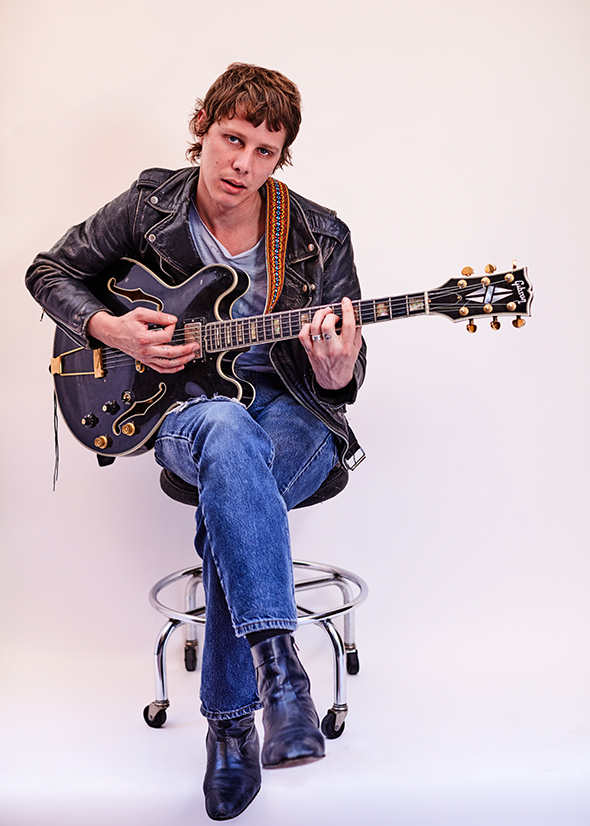Marlon Rabenreither

Marlon Rabenreither was a painter before he was the frontman for Gold Star, but as he was finishing up his studies at the Goldsmiths – University of London, he came to a realization: “It was music that was keeping me up at night, and not fine art.” His father is a rhythm guitarist and a songwriter, and his mother is a singer and a lyricist. Both had warned him about the difficulties of pursuing music, but it seemed that Marlon was destined to follow in the same footsteps. For years, Marlon opened for country legend, Lucinda Williams, who encouraged him to keep writing songs. With tousled hair, blue jeans, and little pretense, Marlon performs with the same sincerity and honesty as his appearance suggests. His music is a fusion of blues, folk, and country. When Marlon sings, his notes are long and mournful, with a gut-wrenching quality like a wolf howling at the moon – the kind of emotion that used to bring tears to Lucinda Williams’ eyes. His album Dark Days is a collection of stories about living with the ache of a broken heart, and he plans to follow that up with a record in March on Autumn Tone called Big Blue. Marlon’s ability to channel this raw emotion seems to flow naturally within him like electricity flowing through wire, illuminating his music and embodying the true spirit of the blues.
After listening to you sing “Learning the Blues,” David Bromberg’s lyric came to mind “You’ve got to suffer if you want to sing the blues.” How much does this ring true with your own life?
For me as a listener it usually comes down to the question of, “Do I believe you? Do I believe what you are singing?” If I can answer yes, then to me it doesn’t really matter how you arrived there. A lot of my friends who write get hung up when they are not going through some sort of emotional turmoil. I haven’t really had this issue too much, there’s plenty of suffering in this world to go around.
I read that at one point you were apprehensive about being the frontman and now you embody that role so well. Do you still, even now, find yourself getting stage fright?
Yeah, it’s kind of a constant. Even after doing this for years. I almost rely on that anxiety, I don’t know what I would do without it. It’s either killing me or pushing me to be better, I’m not sure anymore.
Who or what influences your sound?
Bob Dylan’s songs opened a lot of doors into what Greil Marcus called the “Old, Weird America.” Listening to him turned me on to the long lineage of folk music that he comes from in a sense. I try to steal from everything really, music is endlessly fascinating and mysterious to me. I don’t play blues or country in any traditional sense at all, but there are elements that I have kind of co-opted. I use a pedal steel [guitar], finger picking, harp and close harmony etc. in my work.”
Do you take inspiration from autobiographical experiences?
I have a record coming out called Big Blue and a lot of those songs come from personal experiences. I have been pushing myself to write about the people and places in my life that interest me, and trying to find ways to kind of widen that lens so that it resonates with others too.
Do you have any artistic milestones on your bucket list that you want to share?
There are numerous things that I want to do and to achieve, but I just try to keep my head down and do good work. I honestly think that music saved my life. If I am able to reach even one person, that would be a rather big accomplishment, no?
Text by Zee Chang
Photograph by Darian Zahedi

